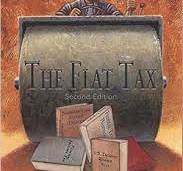
History of Taxation
Taxation has a long and varied history, evolving from ancient practices to modern systems. Here’s an overview of its development:
1. Ancient Civilizations- Mesopotamia (c. 3000 BC): One of the earliest known examples of taxation, where citizens paid a portion of their produce to the rulers or temples.
- Egypt: Taxes were levied on crops, livestock, and goods, often collected in the form of grain.
- Greece: City-states imposed taxes on income and property, with tax collectors known as "publicani."
- The Romans developed a more sophisticated tax system, including taxes on property, sales, and inheritance. They also employed tax collectors, who were often viewed with suspicion and corruption.
- Feudal System: In medieval Europe, taxation was closely linked to land ownership. Lords collected taxes from vassals and peasants, often in the form of labor or goods.
- Tithes: The Church imposed a tithe, requiring individuals to give a portion of their income to support religious institutions.
- 16th-18th Centuries: As nation-states emerged, governments began to implement more structured tax systems. The introduction of income tax in England during the late 18th century marked a significant shift.
- Colonial America: Taxes imposed by British authorities led to growing discontent, culminating in the American Revolution.
- Industrial Revolution: Rapid economic changes prompted the need for more systematic taxation. Income tax became more widely adopted in many countries.
- Progressive Taxation: The concept of taxing higher incomes at higher rates emerged, aiming for greater equity in tax systems.
- Global Expansion: The establishment of social welfare states led to the expansion of tax systems to fund public services.
- International Cooperation: Organizations like the OECD began to address tax issues on a global scale, especially concerning corporate taxation and tax avoidance.
- Today, taxation includes a wide range of taxes such as income tax, corporate tax, VAT, and property tax. Digital economies and globalization have introduced new challenges, leading to ongoing reforms and discussions about tax fairness and efficiency.
Taxation has evolved from simple tribute systems to complex frameworks essential for funding government operations and public services. Its history reflects broader economic, social, and political changes throughout human civilization.
Tags :
- evolving from ancient practices to modern systems. Here’s an overview of its development: 1. Ancient Civilizations Mesopotamia (c. 3000 BC): One of the earliest known examples of taxation
- requiring individuals to give a portion of their income to support religious institutions. 4. Early Modern Period 16th-18th Centuries: As nation-states emerged
- governments began to implement more structured tax systems. The introduction of income tax in England during the late 18th century marked a significant shift. Colonial America: Taxes imposed by British authorities led to growing discontent
- culminating in the American Revolution. 5. 19th Century Onward Industrial Revolution: Rapid economic changes prompted the need for more systematic taxation. Income tax became more widely adopted in many countries. Progressive Taxation: The concept of taxing higher incomes at higher rates emerged
- aiming for greater equity in tax systems. 6. 20th Century Global Expansion: The establishment of social welfare states led to the expansion of tax systems to fund public services. International Cooperation: Organizations like the OECD began to address tax issues on a global scale
- leading to ongoing reforms and discussions about tax fairness and efficiency. Conclusion Taxation has evolved from simple tribute systems to complex frameworks essential for funding government operations and public services. Its history reflects broader economic
Please login to comment










